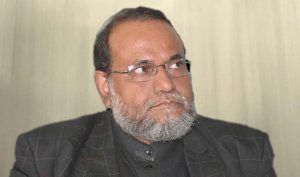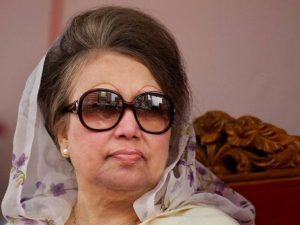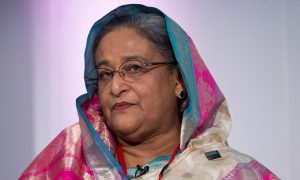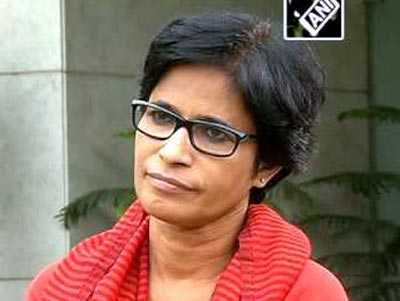Smruti S Pattanaik
The hanging of Mir Quasem Ali, one of the leaders of the Jamaat-i-Islami (JI) in Bangladesh on charges of committing war crimes during the liberation war of 1971, was expected after he refused to apply for Presidential mercy.
Even if he had pleaded for mercy it would have been rejected as had been the case in the past. The issues involved were grave as more than three million people were killed in the liberation struggle against the Pakistani state, its army and their local collaborators.
Quasem Ali is the fifth top Jamaat leader to be executed after the International War Crime Tribunals (ICTs) were set up in 2010 to look into heinous crimes committed against Bengali freedom fighters in 1971. Quasem Ali is believed to have been a top financer of the Jamaat.
But during his trial, as well as in the cases of others, questions were raised about the fairness of the judicial process. However, the persecution submitted a receipt to prove that Mir Quasem Ali had spent US $25 million to engage the US-based lobbying firm, Cassidy and Associates, to raise questions regarding the ICT and the fairness of its verdicts, and also lobby the US Congress and other foreign organisations.
Stigmatization
The conviction of top Jamaat leaders will stigmatize the organization further though the Jamaat is reconciled to the fate of its top leaders. The party, which is currently de-registered as a political party by the Election Commission because the party constitution contradicts the Constitution of Bangladesh, will now face a larger political dilemma if it decides to contest the next election.
To be eligible to contest, the party has to make changes to its constitution which it promised to do in 2008 but did not do. The war crimes trials and conviction of its leaders will cast a long shadow on the electoral prospects of the party. Many younger members of the party therefore feel that the JI needs to clarify its stance during the liberation war, and if required, seek public apology if it decides to contest the election as JI.

Younger Leaders Worried
Though electorally it holds 8 to 10 per cent of votes; the Jamaat strongly argues that the trials have not dented its support base. It gives the example of the non-party based Upazilla elections where Jamaat-backed candidates were elected in many seats.
In spite of these victories, there is some thinking within the party regarding the future direction of Jamaat’s politics. The younger generation argues for a change in the name. The younger generation points out how the JI’s student organisation Chatra Shibir was successful when it re-emerged from the ashes of Chatra Sangha which had been stigmatized.
The demand for the Jamaat to rename itself as a new party to extricate itself from the stigmatized past due to its role in the liberation war is not new. Yet the older leadership of the JI has always been reluctant to accede to this demand, brushing aside any questions regarding its role in the 1971 war.
The emergence of JI as a strong force in Bangladesh politics in the 1991 election in which it won 18 seats in the 300-member National Assembly and later as a part of ruling coalition with two important ministries, has convinced the leadership that 1971 is now history.
It rejected the notion that the 1971 struggle was a “liberation war” and argued that it was a “civil war”. Therefore, there were no “war crimes” as such.
After the conviction of its top leaders, the JI is not inclined to form a new party. It feels that renaming or functioning as a new party will indirectly make it accept its role in killing Bengali freedom fighters in 1971. The party’s stance is that its leaders were not involved in the killings and that these trials and executions are politically motivated.
The Jamaat would wait for the government to ban the party. A ban will provide justification for the JI to rename itself.

Jamaat’s Hartals Have Failed
The Jamaat has called for a hartal each time its leaders have been hanged. But its hartals have not been very successful. People have no appetite for violent hartals. For more than a year now, the Bangladesh Nationalist Party (BNP) has kept itself away from JI hartals, though the JI is part of the 19-party coalition headed by the BNP.
The two political parties have, for the time being, separate political programs. Within the BNP, there is a section that is opposed to the party’s coalition with JI. However, the BNP is yet to take a decision regarding its tie up with Jamaat. The BNP points out that the coalition was an election time tie up and that they are not ideological partners. This is a stance that serves both the JI and the BNP.
Will Jamaat Be Banned?
The two political parties need each other to score electoral successes. But their future relations will depend on whether the Hasina government will ban the Jamaat. The government may decide not to ban the Jamaat as the BNP-Jamaat alliance will help Hasina accuse the BNP of supporting terrorism and militancy.
Both BNP and the JI are currently politically weak, with hundreds of their cadres behind bars. They will find it difficult to put up successful street fights after their three months hartal in 2015 failed. During that agitation, more than 100 people were burnt alive when petrol bombs were thrown at public transport and government vehicles. The BNP and JI realise that such actions only trigger more repression by the government.

A demoralised opposition helps strengthen the Hasina government. While the BNP leadership remains weak and is unable to take a decision on an alliance with the Jamaat, the latter is in the process of electing a new “Amir”.
The war crime trials have caused irreparable damage to the BNP and JI and have undermined their future as coalition partners.
If the opposition is not able to organise themselves and raise relevant questions and hold the government accountable; with 6 per cent economic growth, there is nothing that can stop the Awami League from winning the next elections.
Dr.Smruti Pattanaik is a Research Fellow at the Institute of Defense Studies and Analyses, New Delhi, India





























































